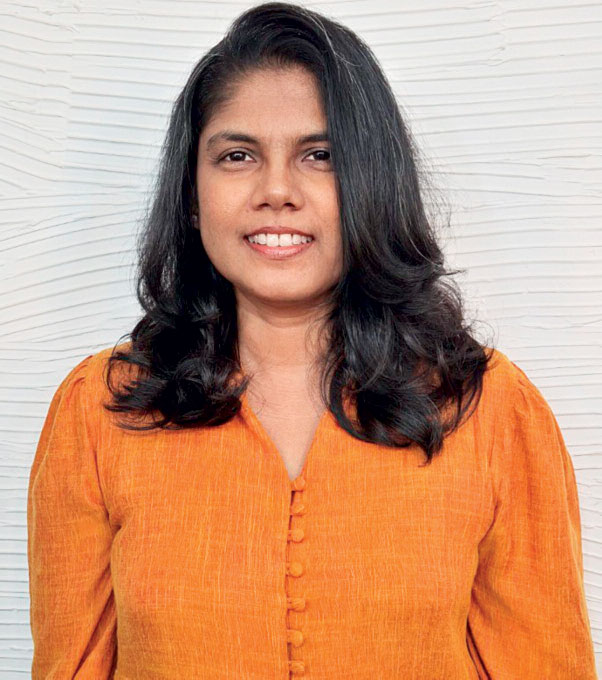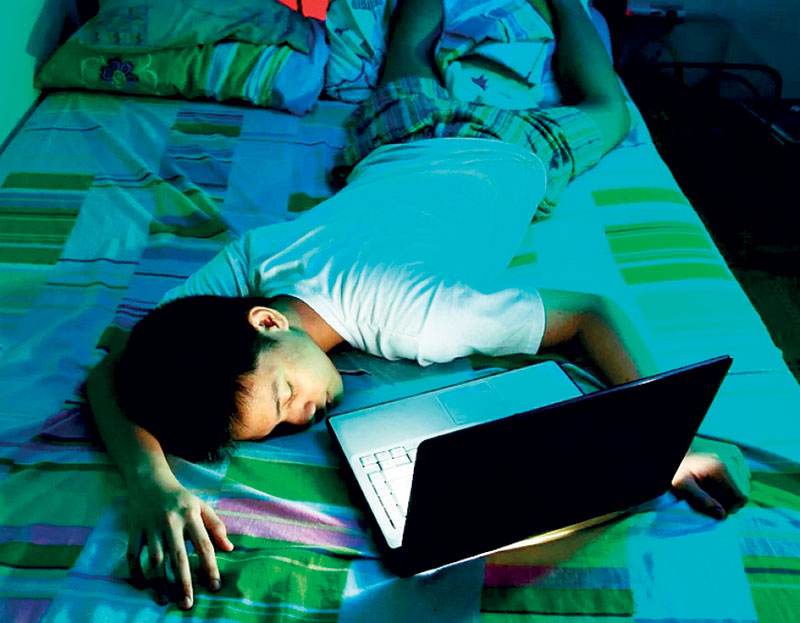Features
Kumar David: Left Intellectual, Friend, Rascal
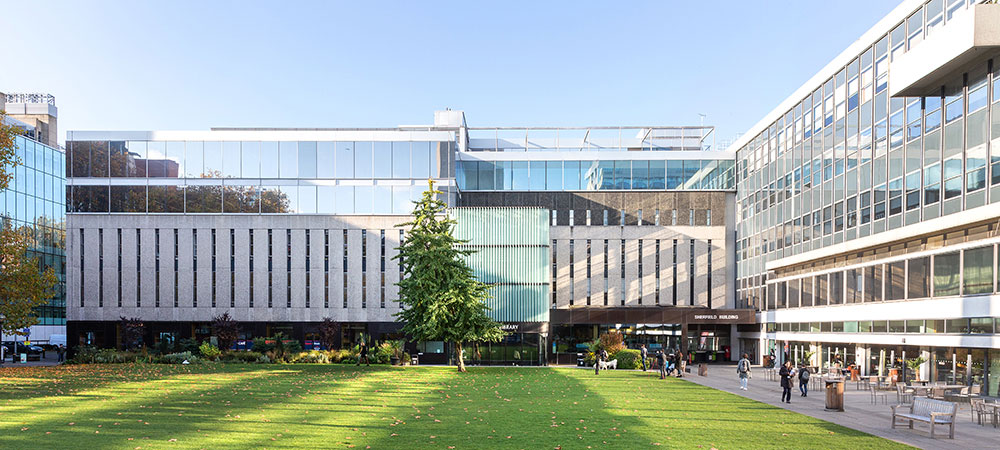
by Jayampathy Wickramaratne
Much will be written in the coming days about the much-loved Kumar David— electrical engineer, brilliant academic, Left intellectual, and writer who passed away on Monday in Los Angeles. Others will write about his academic achievements, his contribution to the Sri Lankan Left, his writings, etc. My short piece is more anecdotal. Kumar had been unwell for some time. In his last email to me on 14 August, he wrote: ‘I am still in LA. Health not too good. Hope to be in SL early 2025 if my health improves.’ Irrepressible as he always was, he added: ‘I understand that you are conning the poor b….s in Papua New Guinea or some such place on Constitutional matters.’
I cannot remember when I first met Kumar. It must have been in 1965 or 1966. In May 1965, during my school days, I joined the Lanka Sama Samaja Party as a youth leaguer in Kandy. In January 1966, I was promoted to ‘candidate member’ of the Kandy LSSP Local, to which Kumar was attached. Those days, we had party names by which we were identified in the Local. Kumar David was ‘Goldin’, and Vickramabahu was ‘Parker-Smith’- both are names of authors of engineering books. In 1966, Kumar left for the United Kingdom and returned in 1969 with a PhD from the Imperial College of Science and Technology, University of London.
It was soon after the famous student protests in Europe, which enthused students worldwide. The LSSP group in Peradeniya organized a lecture by Kumar on the topic ‘Student Unrest in Europe’, but it was disallowed by his own teacher, Prof. E.O.E. Pereira, then Vice-Chancellor, who probably feared that Kumar would call the students to arms! The lecture was finally held at the Physics lecture theatre after Dr. Osmund Jayaratne assured Dean Appapillai that there was nothing to fear. The lecture theatre was packed, with many standing. Kumar’s opening words were: ‘If you have come here expecting fireworks, you will be disappointed. We are going to discuss seriously what happened in Europe and why.’ While at Law College, I helped publish ‘The Nation’, the popular Left weekly edited by Hector Abhayavardhana.
An editorial board of sorts met on Sunday evenings at Hector’s place along Chitra Lane: Kumar David, Jayantha Somasundaram, Vijaya Kumar, Handy Perimpanayagam, myself, and others who dropped in. For me, it was a learning experience. Kumar used to mischievously annoy Hector with criticisms of the United Left government. Hector would refer to Kumar as ‘the rascal’ albeit in his absence!Kumar was funny, indeed. He had nicknames for those close to him- Vijaya Kumar was ‘Kochchi’ because of his Kerala roots, Lankaloka was ‘Ceylon World,’ and I was ‘Jumpy.’ Some of the nicknames he coined are unprintable. He would spice conversations with obscenities, which friends were required to tolerate.
‘Machang, I am not fluent in Sinhala, no?’ he would mischievously justify. Once, at a discussion, we agreed after continuous protests that he could utter an obscenity only once every five minutes, and I was appointed ‘timekeeper.’ Needless to say, I ‘resigned’ after some time.When he began writing regularly to the papers, Kumar asked me to suggest a penname for him. I suggested ‘Aswini,’ his other forename. He said he never liked it. I then suggested ‘Goldin,’ and he was surprised I remembered his party name.
He finally decided to write under his name.When Ranjika and I decided to marry in secret, it was Kumar who helped us, driving early in the morning to fetch her on her way to the school she taught at in Udadumbara and dropping her off just in time for her to return to a relative’s house where she was staying as if she was returning from school.Kumar married Rohini, whose surname, Leula, is the name of the village my family moved to from Udispattuwa to facilitate our schooling in Kandy. I offer my deepest sympathies to Rohini, her son Amrit, and her sisters Kanthi and Tilaka.
The Sri Lankan Left has lost an intellectual giant. Readers of The Island and Colombo Telegraph will miss Kumar on Sundays. I will miss a rascal of a friend. Farewell, Kumar!
Features
Tackling teenage mental health

World Mental Health Day fell on October 10
BY RANDIMA ATTYGALLE
“I’m grateful that my parents are always there for me to discuss any matter openly. I think what it most important for a teenager is to have a comfort of a loving home. I have made wrong decisions at times, misjudged people, got into wrong company, but my parents have never thrown a tantrum or shunned me. Instead, they have gently and wisely guided me back to the correct track,” said Natasha Jayamanne (name changed) who turned 18 recently.
She is also grateful to her supportive teachers who stood by her during some of the most turbulent periods in her life. “I was emotionally bullied which was affecting not only my studies but my overall health. I was anxious, scared and helpless and thanks to my parents and my teachers I found my bearings again,” noted Natasha.
On a different note, 17-year-old Nipuni Gunasekera (name changed) who just got her O/L results had this to say: “I was so excited to check my results online and I wanted both my parents to join me in doing so. Although I did not get 9-As, I got quite good results. When I expected my father to give me a hug and cheer me up, all he did was to sulk and turn his back on me and shut me out,” said Nipuni who spent two miserable days crying. “Although my mother was quite satisfied and comforted me, my father spoilt the moment for me and it was emotionally draining. I felt useless,” said Nipuni.
Navigating a phase of life between childhood and adulthood, being a teenager (13 to 19 years) has its own dilemmas and challenges. The anecdotes of Natasha’s and Nipuni testify that while strong and loving relationships can have a direct and positive influence on teenage mental health and self-esteem, the lack of such connectivity hinders personality development and resilience.
Collective Trauma and pain
The rapid physical, cognitive and psycho-social growth they experience have a direct bearing on their emotions, decision-making and social-interactions. The challenges teenage years entails were compounded by the COVID-19 threat. The overall health and well being of teenagers was compromised by increasing anxiety and depression reported in many teenagers the world over. The ‘indefinite closure’ of schools forged a sense of hopelessness in many of them.
“What our teenagers here at home had to brave in the past few years was by no means easy. Starting with the Easter Sunday attacks and the pandemic which was followed by political and economic unrest in the country took a huge toll on them. The collective trauma and pain we underwent as a nation resulted in individual pain of varying degrees and children and teenagers were not spared. With school closures and their routine extra-curricular activities coming to a halt, more and more teenagers resorted to sedentary lifestyles at the cost of both physical and mental health.,” points out the Clinical Psychologist and Senior Lecturer, Faculty of Humanities and Social Sciences, Sri Lanka Institute of Information Technology (SLIIT), Nilusha Goonetilleke. The chain of disturbing turn of events which left many teenagers anxious, also resulted in loss of social and emotional connectivity.
Globally, according to the World
Health Organization (WHO), it is estimated that one in seven (14%) adolescents (10–19 year olds) experience mental health conditions yet these remain largely unrecognized and untreated. ‘The consequences of failing to address adolescent mental health conditions extend to adulthood, impairing both physical and mental health and limiting opportunities to lead fulfilling lives as adults,’ notes WHO. Depression, anxiety and behavioural disorders are among the leading causes of illness and disability among adolescents. WHO also points out that adolescents with mental health conditions are particularly vulnerable to social exclusion, discrimination, stigma, educational difficulties, risk-taking behaviour, physical ill-health and human rights violations.
Supportive and protective communities
While the onset of adolescence is considered to be 10 years, the onset of teenage years is 13. “A child’s social and emotional habits which are critical for mental well-being are developed at the onset of adolescence. These habits would include interpersonal skills, cognitive skills, healthy eating habits and healthy sleeping patterns and regular exercising. The immediate family, extended family, school and the wider community at large play a decisive role in shaping these habits,” observes the psychologist who goes onto note that while supportive and protective communities could boost the mental health of adolescents and teenagers, poor parenting, domestic violence and bullying, socio-economic challenges which lead to discrimination or exclusion and lack of access to support services compromise the mental health of adolescents and teenagers. “During adolescence, certain patterns of behaviour related to substance abuse and sexual activity are also established and empowering teenagers about the risk these habits entail and equipping them with age-appropriate sexuality education could not only protect their long-term health but also the others around them,” says Goonetilleke
Multiple factors affect mental health, says WHO. Exposure to adversity, pressure to conform with peers and exploration of identity are among these factors. ‘Media influence and gender norms can exacerbate the disparity between an adolescent’s lived reality and their perceptions or aspirations for the future.’
Devices and social media
A growing body of research has also been showing that excessive electronic device use is associated with many muscular and skeletal symptoms including neck/shoulder pain and lower back pain as well as mental health issues including social and parental relationship problems, sleep disruption, drop in academic performance, fatigue and numerous other mental health issues. Needless to say, the COVID pandemic was a double-whammy with more and more children resorting to devices.
“It is a fact that all over the world that the virtual education led to device-abuse among many adolescents. This also led to the widening disparity between those who could afford devices, internet facilities and those who couldn’t, especially in developing countries such as ours. Many of our children and teenagers were left behind with no access even to a smart phone for their on-line lessons. This led to increasing anxiety and distress among them,” remarks the psychologist.
Devices and social media are the two inseparable evils and almost all modern parents are forced to deal with. Teenager-parent conflicts are common due to social-media dependency. “The trial and error, behavioural practice process that all teenagers went through historically is now replaced with social media.
Sadly, many teenagers are made to believe that social media has answers to everything from decision-making to body image. They need to be empowered that these answers are not authentic,” points out Goonetilleke. Addiction to social media outlets could affect interpersonal relationships, communication skills and also disrupt sleep patterns and nutritional needs.
“Today we find many students as young as 12 years addicted to social media. They doze off during classes and show behavioural changes which could be isolation, lethargy or even bouts of anger. They lose interest in school work and also other school activities. It is very sad that many youngsters see only the outward glamour of these outlets,” remarked a teacher (on grounds of anonymity) from a leading Colombo school who urges school authorities to take more proactive initiatives to empower youngsters about the make-believe world of social media. “There have been incidents of young school girls falling a prey to strangers whom they have befriended on social media. Parental supervision on devices is critical which enable youngsters to access social media,” she said further.
Unhealthy competition
Fierce academic competition fostered in children both by the education system of the country as well as some parents who set unrealistic goals is another crucial contributor which affects the mental health of our youngsters in a negative way. “Our education starting from the Grade five scholarship up to the university admission is a never-ending rat race where skills, emotional intelligence and other innate abilities of a child (who eventually becomes a teenager) are undermined. There is hardly any time for a child to develop an aesthetic sense of appreciating a book, music or a film because they are often driven around from one tuition class to another.
“Even if a child does a sport, it is sometimes for wrong reasons; instead of helping a child cultivate leadership qualities, accepting victory and defeat in the same spirit, today a good number of parents as well as trainers instill unhealthy competition in them. Certain games and sports are selected by parents regardless of child’s aptitude for it, merely to maintain a particular social status. All this could take a huge mental toll in youngsters, leading to frustration, mental health conditions and unruly behaviour,” Kalyani Jayasundera, an educationist noted.
Body-shaming
Incidents of teenagers being bullied in school for their body shape is not uncommon. Added to it, today we find parents bullying their own children to achieve the so called the ‘perfect body shape’. Extreme controlling of the diet, vigorous physical exercising and comparing the child to that of a friend’s or another relative’s and ‘body-shaming’ or humiliating one’s own child are not uncommon. “Many parents don’t realize the long-term harm they inflict on their children’s self-esteem and overall mental health by these extreme acts of making them stay in shape. We often see such children and teenagers driven to binging and later on developing eating disorders and personality disorders as adults,” points out the psychologist.
Positive parenting
Positive-parenting plays the fundamental role in the overall well being of a child who would eventually become an adult and a parent himself/herself. The Positive Parenting Manual of UNICEF Sri Lanka notes that positive parenting ‘is a belief, a way of living’ and ‘is not restricted to a method, a set of rules, or a style’. It further says that ‘Positive parenting is about building a mutually respectful relationship with your children, teaching children life-long skills, increasing children’s competence and confidence to handle challenging situation and teaching courtesy, non-violence, empathy, self-respect, human rights and respect for others.’
The manual also notes that ‘the very first step to become a positive parent is to adjust one’s thinking, by improving your own knowledge, attitudes, behaviours and skills.’ With the generation gap becoming wider even in cultures such as ours, the need for positive parenting is unprecedented in helping children and teenagers navigate the trappings of modern times, remarks Goonetilleke. “Today extended families with grandparents are fast becoming a scene from the past. This has also resulted in the absence of traditional parental wisdom passed down. Even among extended family units, modern parents have to navigate a new set of challenges for which we too as a country should prepare with enhanced interventions for positive parenting which would ultimately empower children and teenagers,” concludes the psychologist.
Tips for teenagers
Have healthy relationships with family and friends
Don’t give into bullying or forced sexual orientations
Explore your own identity, it will take time
Get involved in a variety of activities
Bounce back from failures and disappointments and be resilient
Have self-discipline over devices and use of social media
Be responsible for your physical and mental health
Learn to say ‘no’ to wrong people, wrong places and wrong deeds
For parents and teachers
Have an open and meaningful conversation with your teenager
Encourage teenagers to share their concerns, worries
It is natural for teenagers to be attracted to the opposite sex
Give them confidence that you are there for them at anytime
Pick out any behavioural changes such as withdrawal from family, friends, school work, disruption in sleep patterns, anger outburst, anxiety, fear
Use empathy instead of discrimination and stigmatizing
Celebrate your teenager’s achievements – these need not be always academic, but an act of kindness, empathy, bravery- all these matter
Features
Kumar David: An Accomplished Academic and a Broadminded Marxist
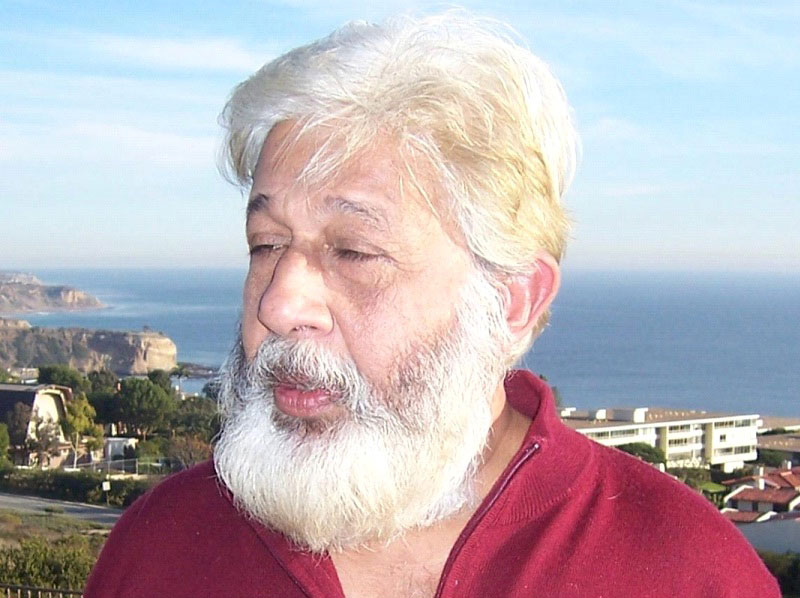
by Rajan Philips
One by one the lights go out. In a span of seven months, Sri Lanka’s Engineering fraternity and the country’s progressive political fraternity have lost three of their kind, one after another. Chris Rodrigo was the first to go in March, then it was Bahu in July, and now it is Kumar David, the oldest of the three. Professor Kumar David passed away in Los Angeles, on Monday, October 14. He was 83 years old.
He had been in declining health for some time after a cataract surgery that did not go as smoothly as such surgeries do. But on his annual visit to Sri Lanka earlier in May, he seemed to be in good spirits, and he was closely following from LA the results of the September presidential election in Sri Lanka. He was obviously pleased with the results and would have been hoping to see their consolidation in November. That was not to be. His was a long life, well lived, yet the end came too suddenly and too painfully for many of us.
All the more so, for Rohini, his wife of nearly fifty years; children Asela, Anusha and Amrit, and grandchildren Yasmine, Elai, Addie, and Andy. They and his extended family of cousins and in-laws will miss him dearly, but they will also have fond memories of him and a legacy of achievements that they could be proud of and draw inspiration from.
Twin Legacies
Among all his Engineering Faculty contemporaries, the best and the brightest Sri Lankans of their times, Kumar lit up the lives of many in the most far-flung way possible. From the lecture halls of Peradeniya to the research labs in the London Imperial College, with long stints in Sweden and Zimbabwe, visiting assignments in India and the US, to his ultimate pinnacle at the Hong Kong Polytechnic that drew students from mainland China, and where he spent 25 years and retired as Dean of Engineering – Kumar David has left a long legacy of teaching and scholarship that everyone who has come to know him at various times over nearly 60 years can proudly remember and celebrate. But there was more to Kumar’s life and there is more to his legacy.
While he was known and respected for his academic accomplishments within and outside Sri Lanka, he was even more known in Sri Lanka for his involvements and discourses in politics. And for the last 17 years, as a regular and popular Sunday Island columnist, on wide ranging subjects – national and global politics, national and international economics, science and technology, and of course Marxism and the dynamics of social change.
The political part of his life had started a whole decade before his engineering career began in 1963. Family circumstances had brought him as a young boy close to the frontline leaders of the Lanka Sama Samaja Party, to the politics of socialism, and to becoming familiar with Marxism as an apparatus of thought. He was a boyish listener to political discussions on the Hartal of 1953 and the exposure made a lasting impact on his intellectual development in tandem with political commitments.
But the early political exposure and later involvements did not distract him from his studies and academic pursuits, and the genius of Kumar David was that he was able to maintain focus on both with discipline and dedication for all his adult life.
What is also remarkable is that besides Kumar David (graduated in 1963), three other engineering alumni of the same vintage, viz., Sivanandan Sivasegaram (1964), and Wickramabahu Karunaratne and Chris Rodrigo (1965) have similarly achieved academic excellence while actively abiding by their political ideals and commitments. Dr. Sivasegaram is continuing where others have left, abiding by the same ideals that have inspired his politics, and offering sharp observations on current developments.
While their academic achievements are objectively indisputable, their political accomplishments are open to interpretation according to political subjectivities. What is indisputable, however, is that their politics has been utterly free of self-promotion and of all the banalities associated with parliamentary politics. Like his three contemporaries Kumar David’s main political role was that of the ‘organic’ public intellectual, contributing more to positive political education than the mechanics of political representation. The Left politics in Sri Lanka, as elsewhere, is often the politics of opposition – opposition to the established mores of bigotry, injustice and inequality. It is this characteristic that makes the pursuit of politics worthwhile even when it does not lead to its ultimate consummation with power.
I wrote somewhat extensively on the trajectory of left politics on the occasion of Kumar David’s 80th birthday in June 2021. Some of us revisited those themes when Bahu passed away in July. In what may have been his last piece of writing, Kumar David wrote on the political legacy of Bahu and quite authoritatively placed him in the pantheon of left leaders alongside the founding fathers. I touched on this again in broad outline in tracing the historic September win of President AKD to the overall contributions of the left movement.
Prof. Vijaya Kumar has now provided an inside account of left politics since the 1960s and Kumar David’s role in it. There will be more occasions to positively revisit these matters if the AKD/NPP administration would live up to its promises and expectations.
In Kumar David, broadmindedness and Marxism came together coevally and complementarily. In any event, one cannot be a Marxist and be narrow minded. Kumar was naturally empathetic to the needs and concerns of others. He could be trenchant in his criticisms of other opinions, but he was never intolerant of them. For a man of highly serious purposes, he was also incorrigibly impish, and always a fun company for social occasions.
Kumar was generous to a fault, and there have been many instances of his helping individuals in need, in addition to financially supporting the political organizations he was associated with. He maintained these attributes to the end even as his biological clock was running down. He ran the good race, fought the good fight and lived a good life. He has kept his promises and earned his rest.
Features
The possible future of foreign policy in Sri Lanka
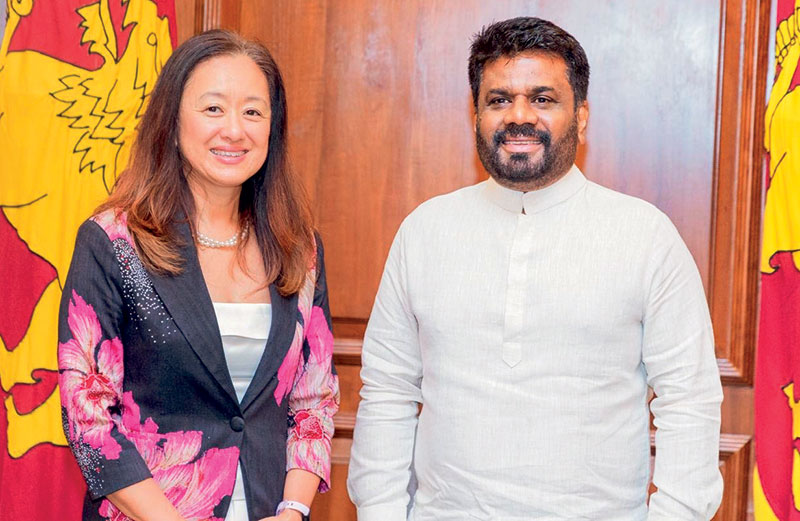
By Uditha Devapriya
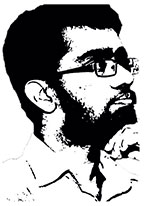 The last two weeks suggest that the NPP is moving to the centre, most probably in a bid to grapple with the challenges of a slim majority. The new government has announced that it will oppose the upcoming UNHRC resolution on Sri Lanka. This indicates that it is moving to embrace the nationalist space that was previously held by Mahinda Rajapaksa and his family, but has since bifurcated, if not trifurcated. As Harendra Dassanayake and Rajni Gamage recently observed, the Sinhala Buddhist space in Sri Lanka currently lacks a leader. The NPP appears to have caught the most vocally articulate sections of this milieu.
The last two weeks suggest that the NPP is moving to the centre, most probably in a bid to grapple with the challenges of a slim majority. The new government has announced that it will oppose the upcoming UNHRC resolution on Sri Lanka. This indicates that it is moving to embrace the nationalist space that was previously held by Mahinda Rajapaksa and his family, but has since bifurcated, if not trifurcated. As Harendra Dassanayake and Rajni Gamage recently observed, the Sinhala Buddhist space in Sri Lanka currently lacks a leader. The NPP appears to have caught the most vocally articulate sections of this milieu.
What do these developments mean for Sri Lanka’s foreign policy? It is difficult to ascertain which direction this government is headed. Since assuming office, President Anura Kumara Dissanayake has been greeting and meeting numerous ambassadors and diplomatic officials, from the US to Palestine. These engagements, however, tell us little about what the regime will finally do. The NPP’s anti-establishment rhetoric will likely translate into major changes within the Foreign Service and diplomatic apparatus. Whether that will spill over to changes in foreign policy stricto sensu, however, is debatable.
Ideologically, the NPP is the radical-liberal face of the JVP, just as the JVP is the dominant outfit of the NPP. Since coming to power, it has shifted considerably from what it used to believe in and stand for. On some issues, however, it has indicated that it will commit itself to what it said at election rallies. The most prominent of these is the Adani power plant project. Widely reviled and censured, by environmentalists and civil society as much as by nationalist political interests, the Adani project has run into a legal logjam here, mainly over concerns about the tender and bidding process.
Sri Lanka has a long, infamous history of “revisiting” bilateral, even multilateral, agreements, including foreign investments. The Gotabaya Rajapaksa government was no different to previous regimes in this regard, yet the depths to which it sank – cancelling the LRT deal with Japan – means that Sri Lanka can’t afford a repetition. The Adani deal is different in that it has organically cultivated a bad press among many Sri Lankans – even those who think that the country must prioritise its relations with India. The NPP’s rhetoric on the deal resonates with its anti-establishment and anti-corruption discourses. This is different to, say, the IMF agreement, which has its critics, but which is seen as important even if it has led to austerity measures being imposed on vulnerable communities.
It is likely, then, that the NPP’s foreign policy will be articulated strongly in its response to foreign investments. In his first public address, President Dissanayake prioritised stability and recovery. There are different ways of achieving stability and recovery, and one government’s efforts will be different to another’s. The JVP has historically viewed foreign investments with disfavour, reflecting the popular view of FDIs as exploitative and of little to no benefit to the country. It is likely that the NPP will moderate its position on such investments. However, even if it does so, it will have to grapple with the challenge of attracting FDIs in a context where the IMF has put an end to the regime of tax concessions and holidays that the Board of Investment had entrenched for decades, since the 1990s.
This underlies a contradiction between Sri Lanka’s aspirations to become an export-oriented economy and the general trajectory of IMF reforms. The NPP will find it difficult to resolve this, in particular given the burden of expectations it has been saddled with. However, this task, and that burden, is something the government will have to address for the rest of its term. As the backlash against the recent stamp incident suggests, even the most innocuous thing will be held against it, by its critics as much by its supporters. As it begins to commit itself to economic reforms, especially after the November election, it will thus have to meet the high standards that the public is measuring it against.
The NPP’s and JVP’s populist-welfarist rhetoric underlies yet another contradiction, between its commitment to the IMF agreement and the resistance to some of the current economic reforms by the grassroots. Two of the most polarising reforms have been the tax hikes and the overhauling of social security, specifically Samurdhi. The NPP, or rather the JVP, has its strongest pockets in the Sinhala and Buddhist agrarian heartland: in the southwest quadrant, and across the north-west and north-central provinces. In these areas, social security and social safety mechanisms have become firmly embedded in the rural ecosystem. When the Ranil Wickremesinghe government tinkered with them, it opened itself up to the risk of electoral suicide. The NPP benefitted from this. It remains to be seen whether it will reverse the reforms of the previous administration in these areas.
As these developments show clearly, the NPP’s foreign policy will be determined by the current spate and future course of economic reforms. Some of the contradictions underlying these reforms are intrinsic: for instance, between the need to attract FDIs and the removal of tax concessions and exemptions on foreign investments. Others are extrinsic and have to do with the JVP-NPP’s policy postures: for instance, the debate over raising tax thresholds from Rs 100,000 to Rs 200,000. Moreover, as I mentioned before, the NPP government is saddled with the burden of expectations. It is responding to this burden in two ways: one, by providing relief for farmers and the middle-class, and two, by claiming the nationalist space that the Rajapaksas had previously occupied.
The NPP has so far prided itself on its radical and liberal character. As the People’s Struggle Alliance’s poor electoral showing shows, virtue-signalling on single issues will not win any party or politician, even those ostensibly led by anti-establishment elements, political space. The NPP is now in power. It is in control of institutions that it previously critiqued as either corrupt or wasteful. What it does with these will have an impact on where it sees itself, and the country, in the world of today. The next two months are hence crucial.
Uditha Devapriya is the Chief International Relations Analyst at Factum, an Asia-Pacific focused foreign policy think-tank based in Colombo and accessible via . He can be reached at uditha@factum.lk.
-

 Sports1 day ago
Sports1 day agoOshara making huge strides in cricket in UK
-

 Editorial5 days ago
Editorial5 days agoGenie at large
-
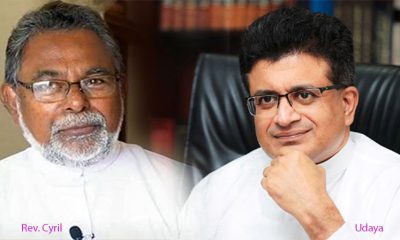
 News2 days ago
News2 days agoChurch not interested in reports sought by Gammanpila: Spokesperson
-

 Editorial3 days ago
Editorial3 days agoMuch-maligned Manape
-

 Features6 days ago
Features6 days agoExodus to Italy and its consequences
-

 News2 days ago
News2 days agoJohnston missing amid probe into illegally assembled BMW
-
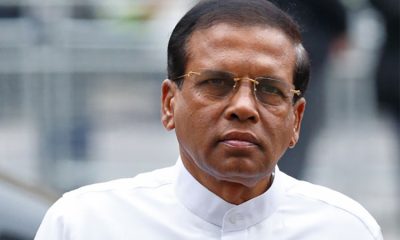
 News2 days ago
News2 days agoSirisena teases 2018 PM ouster secret, urges clean leadership
-
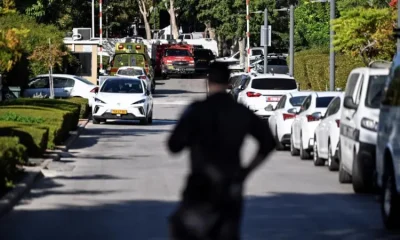
 Latest News17 hours ago
Latest News17 hours agoDrone ‘launched towards’ Israeli PM Netanyahu’s home


